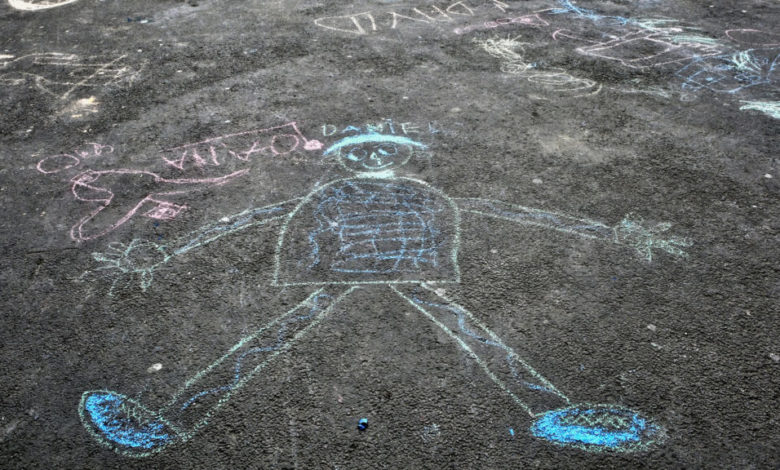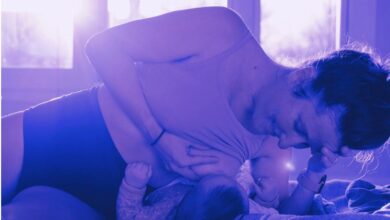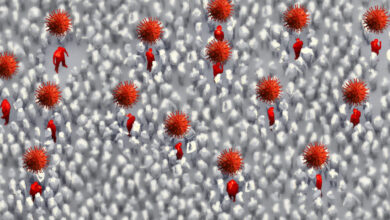‘Sociability’ hormone oxytocin didn’t help kids with autism, study finds


Children with autism didn’t profit from an experimental remedy made with a hormone thought to advertise social bonding, researchers reported Wednesday within the largest research of its form.
“That is actually a significant setback,” mentioned Linmarie Sikich, a Duke College researcher who led the multisite U.S. research published within the New England Journal of Medication. “We had been actually hoping to discover a profit and simply couldn’t see it anyplace.”
The U.S. government-funded research used an artificial type of oxytocin, a hormone made within the mind that stimulates uterus contractions and helps moms bond with their newborns.
commercial
Experiments in mice have advised the hormone might promote sociability, and small research have hinted that it might need related results in kids with autism, who typically battle with social interplay.
Almost 300 kids with autism initially enrolled, and 250 of them accomplished the six-month research. The youngsters, ages 3 to 17, obtained day by day squirts of nasal spray containing oxytocin or an inactive ingredient for seven weeks, with gradual dose will increase after that. The dose could possibly be maintained or decreased if requested.
commercial
Small habits enhancements occurred in each teams, however they’d no significant influence, Vikich mentioned. Separate analyses confirmed no distinction in consequence in children with gentle or extreme autism, she mentioned.
One affected person within the oxytocin group had a critical facet impact considered brought on by the hormone — sedation whereas driving that led to a automotive accident. In any other case there have been no main security issues within the hormone and placebo teams.
About 1 in 54 U.S. kids have autism, in accordance with the Facilities for Illness Management and Prevention. Habits remedy is the simplest therapy.
Oxytocin is a naturally occurring hormone and chemical messenger. It’s best identified for its function in triggering labor and the discharge of breast milk in girls. Artificial oxytocin is typically given to pregnant girls by IV to induce labor.
Primarily based on the early analysis findings, some medical doctors started prescribing it for youngsters with autism. Some promoters name it “the love hormone” and it’s offered on-line in potions and tablets as a temper and relationship booster.
Larry Younger, an Emory College scientist who does animal analysis with oxytocin, mentioned it’s too quickly to surrender on it for treating autism. He mentioned the hormone is best understood immediately than when the research started almost eight years in the past.
“It makes the social world round us extra vibrant in our mind, so we take note of it,” Younger mentioned.
He likened the potential impact in individuals with autism to eradicating frost from a windshield that forestalls them from studying social cues and feelings.
With out accompanying habits remedy or steering, nevertheless, that impact could possibly be damaging, he mentioned. He cited a hypothetical instance through which a toddler with autism will get a squirt of oxytocin every morning and begins paying extra consideration to different children on the varsity bus. What if the improved consideration helps the kid notice that the youngsters are being imply and bullying?
“This can be a crucial research as a result of it does say that simply willy-nilly giving day by day administrations of oxytocin is just not going to result in enchancment,” Younger mentioned. “Hopefully physicians and fogeys will be taught from this and say this isn’t one thing we give as a vitamin” with out different therapy.
Joyce Galaverna’s son was 13 when he enrolled within the research in 2015. He tolerated the therapies however his habits confirmed no enchancment.
“The irritability and nervousness ranges just about stayed the identical all through the research,” she mentioned.
The North Carolina household by no means realized if he had obtained oxytocin or the placebo.
Whereas the research consequence was a disappointment, Galaverna mentioned her son, Andre, did enhance after puberty pangs eased and he enrolled in a nurturing personal faculty. He completed highschool in June and now has a part-time job.
College of Virginia autism researcher Kevin Pelphrey mentioned different research have proven that giving oxytocin by nostril might result in adjustments in mind areas concerned in social habits. He mentioned the research’s use of a habits guidelines to evaluate the hormone’s effectiveness might have restricted its findings.
Mind-based measures could possibly be useful in figuring out which children may reply greatest to the hormone, he mentioned.
“There’s nonetheless a lot work to be completed within the space of understanding how oxytocin could be utilized to enhance social operate in children with autism,” Pelphrey mentioned.




